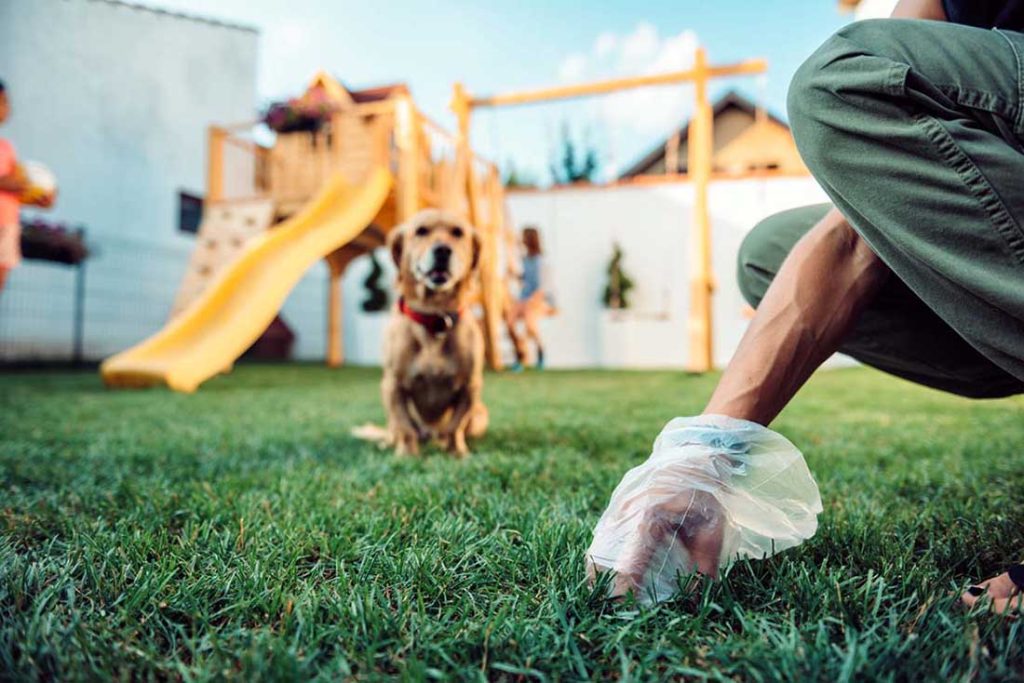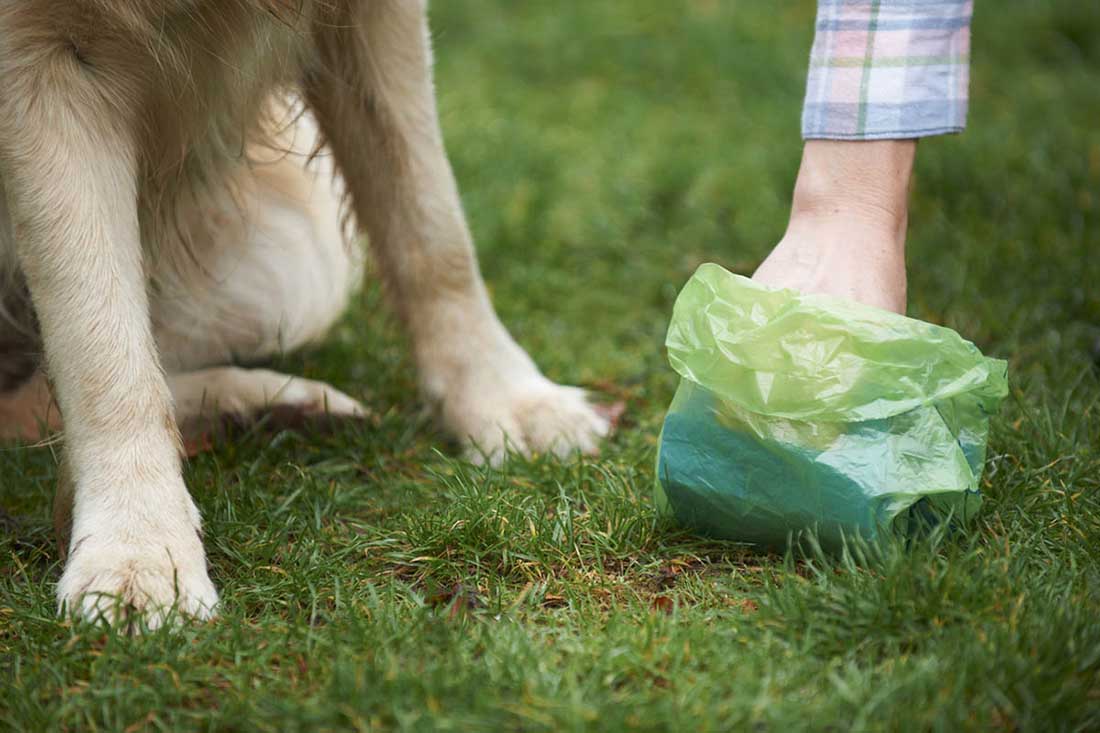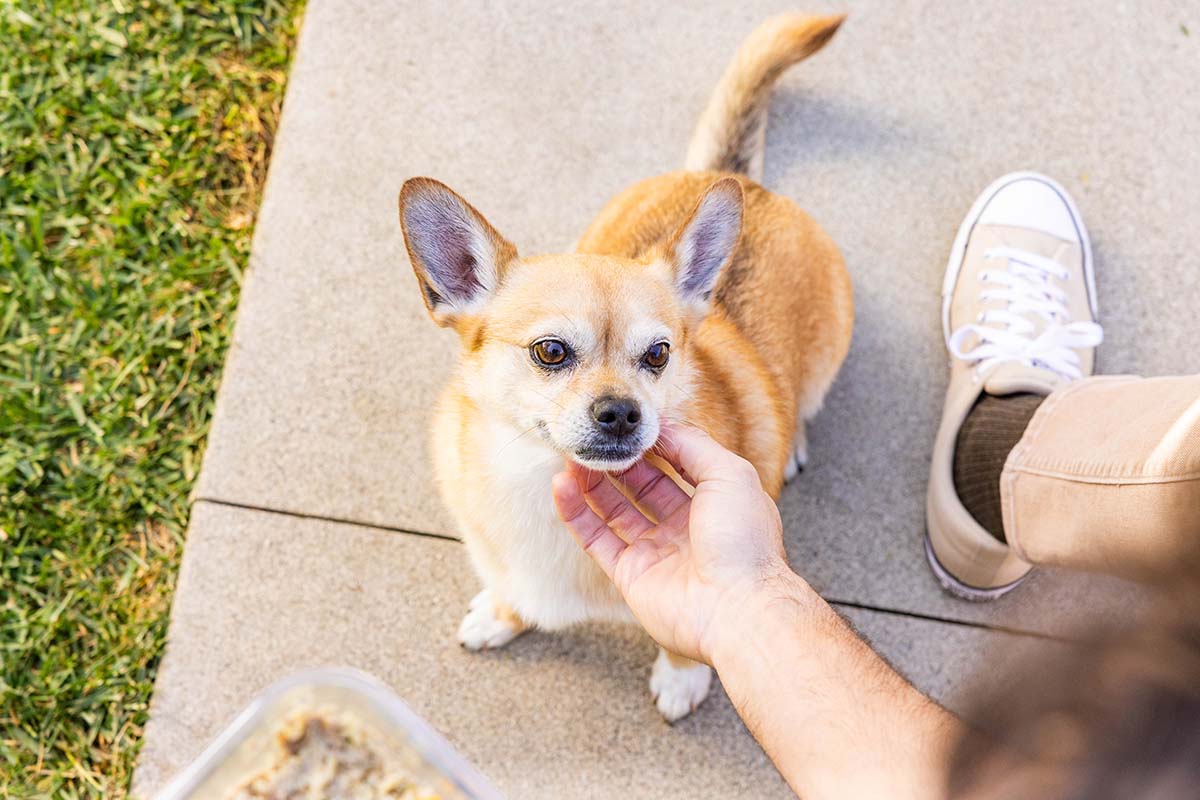Blood in Dog Poop: What It Means
What should you do if you notice blood in your dog's stool? Here's how to tell if it's an emergency.
Few things can worry a loving pet parent more than seeing blood in their dog’s poop. You probably already know that blood should be in your dog’s blood vessels and nowhere else. But is it an emergency, and what should you do if you see blood in your dog’s stool?
Let’s take a closer look at what this symptom might mean and whether or not it is something that should cause you to make a trip to the emergency room.
What Does Blood in Dog Poop Indicate?

Should you see blood in your dog’s poop, there are a few things you want to note about it. You should note both the color and consistency of your dog’s stool.
Of course, your dog can’t tell you when he’s not feeling well, so it’s important to have him checked by a veterinarian any time you find blood in his stool. It’s a clear sign that something is not right.
Basically, there are two types of bloody stool: hematochezia and melena.
1. Hematochezia
This type of blood is bright red, which indicates fresh blood. This usually means the bleeding occurs in the lower digestive tract or colon. It isn’t always an indicator of a life-threatening illness, but it can be, so it’s important to have your pooch checked by his veterinarian.
Of course, seeing bright red blood is unnerving, to say the least. But if it’s a single streak and your dog’s poop is normal otherwise, it could just be a one-time occurrence. You should still call your veterinarian, but if the bleeding is consistent over time or there are very large amounts of red blood, that indicates a more serious problem, particularly if your dog is also suffering from diarrhea.
So what can hematochezia mean? According to the American Kennel Club, there are several possible common causes:
- Colitis, which simply refers to inflammation of the colon
- Internal parasites that suck blood, like hookworms
- Trauma that could be the result of him swallowing something he shouldn’t have or from being impacted externally forcefully enough to cause internal injuries
- Toxins that inflame and damage his intestinal tract
- Inflammatory bowel disease
- Anal sac infections or impactions (blockages)
Some of the more severe conditions that can cause bloody diarrhea include the following:
- Viral and bacterial infections like parvovirus, which can be life-threatening, particularly when paired with vomiting
- Hemorrhagic gastroenteritis for which the exact cause is unknown, but various conditions may be implicated, such as stomach ulcers, trauma, and foreign bodies, among others
- Some types of cancer can also cause bloody diarrhea
2. Melena, or dark, tarry stools
Another type of blood in stool is melena, which is dark, sticky, and almost jelly-like in consistency. Melena is blood that has been either swallowed or digested before getting to the lower digestive tract.
It can be difficult to be certain that your dog’s dark stool is, in fact, blood, but if you wipe it on a paper towel, you can see that the color is reddish. Of course, some dogs have darker stool than other dogs, but you probably know your dog’s poop pretty well. If the darker color is a change, then you’ll want to contact your veterinarian.
Melena indicates a problem in the upper digestive tract, such as the stomach or small intestines. Some common causes of melena include the following:
- Infections
- Inflammatory disorders
- Parasites
- Ulcers
- Foreign bodies
- Trauma
- Kidney failure
- Toxins
- Conditions like Addison’s disease
- Liver disease
- Pancreatitis, which is an inflammation of the pancreas and usually accompanied by vomiting
- Hormonal problems
- Clotting disorders
- Food allergies
- Immune system disorders
- Reactions to certain medications
With most of the more serious conditions or diseases, like liver problems, kidney failure, or pancreatitis, your dog will likely have other symptoms. These include things like lethargy, loss of appetite, weakness, and difficulty breathing.
As you can imagine, if you’re seeing bloody stools along with other symptoms, you’ll need to contact your vet immediately. If it’s after hours, you might even need to see an emergency vet.
If your dog just started a new medication, stop giving that to him immediately and call your vet.
How Will Your Veterinarian Diagnose the Cause of Bloody Stool?

In most cases to determine the cause of blood, your veterinarian will begin with a fecal sample. You can help with that by collecting some of your dog’s stool to take to the veterinarian when you go. A stool sample can reveal the presence of parasites that cause blood in the gastrointestinal tract, like giardia or hookworms.
They can also test it for the presence of certain enzymes that might indicate pancreatitis or other pancreatic conditions. Your vet will also likely take x-rays to see if they can visualize any problem, like a foreign body, as the underlying cause of the bloody stool.
From there, they may do additional laboratory tests to look for the various other conditions that be the cause of a dog pooping blood.
What are the Treatment Possibilities?
As you might imagine, the treatment depends on the identified cause of this problem. Since there are several possible causes of bloody stool, there are also several different treatment possibilities.
If something like parvovirus is diagnosed, for example, your dog will likely require hospitalization, IV fluids, and other supportive treatments. Once he recovers, vaccination for parvo will be an important element in preventing it again in the future.
Any bloody stool that is also accompanied by diarrhea, no matter the cause, will also likely require IV fluids to help offset the dehydration that commonly occurs. Other underlying causes will need different treatments that vary in their application.
That might include, for example, anti-parasite treatments or dewormers, probiotics, and even changes in your dog food. Of course, if the cause is the ingestion of some kind of toxin, your dog may need to be treated for that.
Other causes, like problems with the anal glands, may be relatively easy to solve, although it is also possible they may need more extensive treatment. Of course, tumors would require a more involved treatment regimen that may include surgery.
Pet owners will likely be asked to monitor their dog’s bowel movements as part of its post-treatment care. Additional follow-up care might include a dietary change to a more bland diet than what he has typically been on in the past. This might be a temporary change, or your veterinarian might recommend that it be permanent.
This content is for informational use only and does not replace professional nutrition and/or medical advice, diagnosis, or treatment. It is not a substitute for and should not be relied upon for specific nutrition and/or medical recommendations. Please talk with your veterinarian about any questions or concerns.








